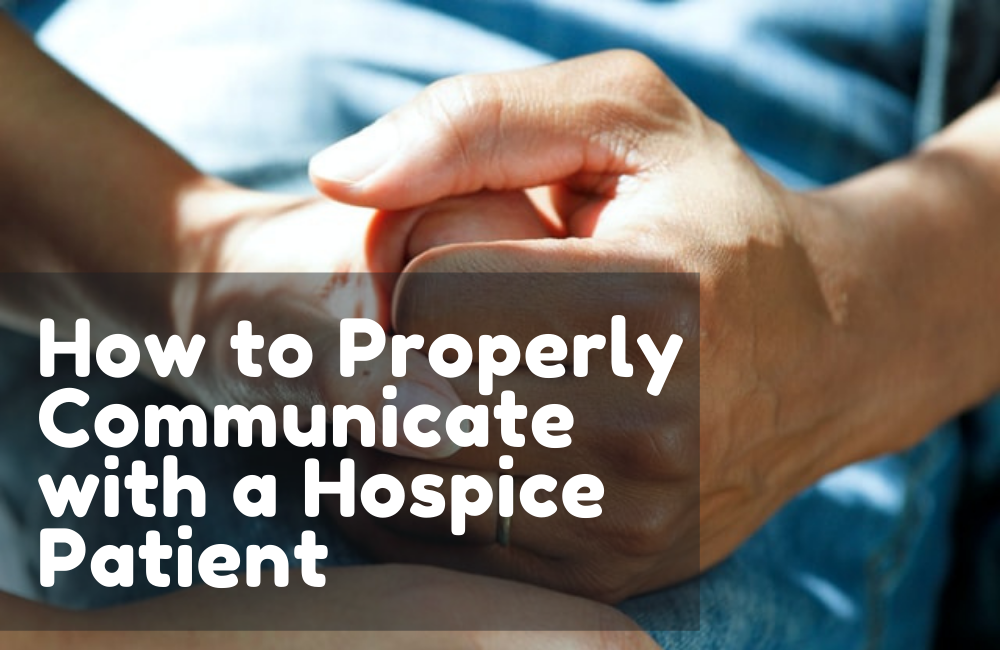It’s a bitter fact to acknowledge, but terminally-ill patients exist. These are people suffering from sickness, with only months or years left to live. When patients are declared terminally ill, they are placed in hospice care. Hospice care focuses less on healing the patient’s sickness but making their remaining days as comfortable for them as possible.
It can be a challenge because many people are affected by this, which goes beyond just the patient—the impending death also affects their families. It’s uncharted territory since everything can be hard to process, especially what to say to them.
Many people are worried that what they say to the patient might be taken the wrong way, which is why it’s essential to be careful when talking to hospice patients. Below are some pointers on how best to communicate with patients in hospice care:
Relive Their Past
A person’s lifetime is a treasure trove of many topics that you can talk about. Even if you don’t know the patient, you can ask them about some of the happiest moments that they have experienced in their lifetime. You can also ask them what it was like growing up in their hometown, along with other milestones.
If the patient is comfortable enough with you, you can ask them about their regrets or unresolved issues. This is especially important since people in hospice care tend to have lots of them eager to seek some sort of closure.
Let the Patient Take the Lead
The patient will talk whenever they feel comfortable, and if they’re comfortable enough with you, they will divulge details about themselves to you, and all you have to do is to listen to what they are saying. When patients lead the conversation, they tend to be livelier when it comes to sharing personal details.
Keep in mind that some patients are naturally untalkative, however, and that you shouldn’t pressure them to engage in a conversation with you.
Allow Them to Talk about Their Condition If They Want To
People think that by avoiding the topic of death in conversations, they’re doing their loved one in hospice care a favor by protecting them. However, that’s not the case at all. Hospice patients are aware of their situation, and the impending death should be a subject of discussion, with them in the lead.
When people avoid the topic of death, the hospice patient can end up feeling isolated, which leads to them having no one to share their feelings with.
Let Periods of Silence Take Over
It might get awkward when talking to a patient in hospice care, but this is quite normal. There’s no need to fill the silence with words. Instead, you can use non-verbal communication, such as holding their hand to say that you’re there for them. You can also engage in recreational activities with the hospice patient, which can be a potential conversation starter.
What You Should Avoid Saying to a Hospice Patient
The biggest thing to not say to a hospice patient is to give them a false sense of hope. Saying things like “you can still recover” despite being in hospice care already is a false sense of hope. Hospice patients are well aware of their situation, and mere words are not going to get them out of it.
Conclusion
Taking care of someone in hospice care can be daunting and challenging. However, the important thing is to take care of them since their remaining days are already numbered. If you take care of them well, they can move on from this world happily.
Hospice treatment is a dreadful thought for many families everywhere. If you can’t do it on your own, it’s best to consult a home health care agency. Bridge Home Health & Hospice provides hospice care at home.
We take it upon ourselves to make sure that your loved one’s remaining days in this world are happy. Contact us today for a consultation!

